車(chē)尾冒著黑煙���,伴隨著轟隆隆的噪音,常常出沒(méi)在亞太城市街頭的三蹦子��,就如同蚊子的嗡嗡聲一樣�����,惱人卻又揮之不去��。
The noise and black exhaust of tinytuk tukengines are as familiar and irritating as the buzz of a mosquito in many Asian cities.
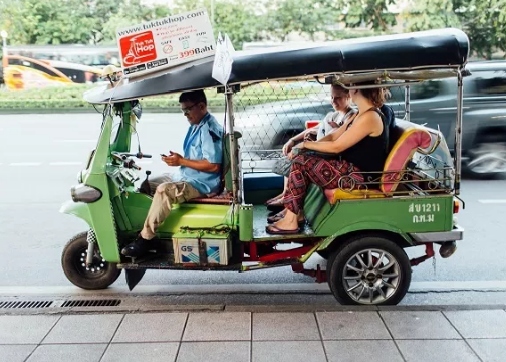
然而����,如果對(duì)這些方便易行的交通工具進(jìn)行改造,將噪聲降至最低且實(shí)現(xiàn)零排放��,會(huì)怎樣呢��?這是Sasiranga da Silva致力于達(dá)成的目標(biāo)。他為三蹦子發(fā)明了一套電動(dòng)轉(zhuǎn)換工具����,在他的家鄉(xiāng)斯里蘭卡的科倫坡進(jìn)行推廣。
But what if hauling passengers and packages produced only a quiet hum and zero emissions? That’s the goal of Sasiranga da Silva, who invented an electric conversion kit for tuk tuks and is rolling it out across his hometown of Colombo, Sri Lanka.
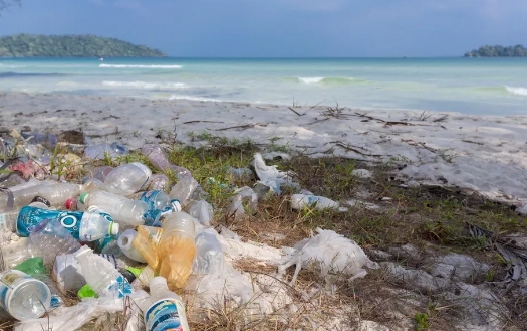
海洋垃圾被頻頻沖上太平洋海岸��,令人堪憂(yōu)��。然而����,如果針對(duì)一次性塑料產(chǎn)品開(kāi)刀,將它變成可重復(fù)使用的物品���,重塑塑料潮流�����,會(huì)怎樣呢����?
Marine litteris washing up too frequently on Pacific coastlines. But what if we make a dent in the plastic tide by turning disposable products into something reusable?
Samoan Angelica Salele就在朝著這一方向努力�。她研發(fā)了可重復(fù)使用的女性衛(wèi)生用品,在此過(guò)程中��,不僅在阿皮亞成立了一家小型工廠(chǎng)�����,還因此創(chuàng)造了很多工作崗位�。
Samoan Angelica Salele has found a way to do that with reusable feminine hygiene products. In the process, she’s creating a small manufacturing industry and jobs in Apia at the same time.
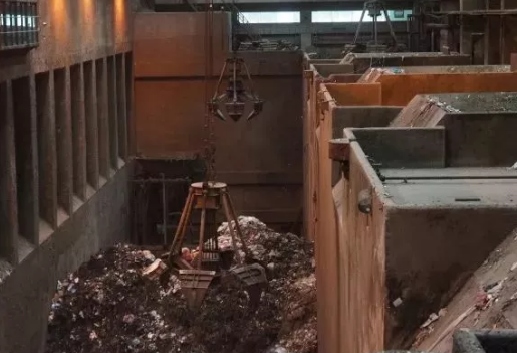
如果你住在世界上最袖珍的國(guó)家之一,卻面臨著垃圾成山的問(wèn)題���,你會(huì)怎么做�����?出臺(tái)聰明的解決辦法����。
And whentrash is piling up, what do you do when you live in one of the tiniest ries in the world? You get clever.
新加坡的大士南焚燒廠(chǎng)能將垃圾的體積縮小將近90%�����,處理過(guò)程中�,不僅能分離出可回收的金屬,同時(shí)也能成功清除排放物中大部分有害物質(zhì)�����。焚燒產(chǎn)生的熱量可轉(zhuǎn)化成電能,發(fā)電量甚至達(dá)到了所需電力的4倍����,所有電能可被注入電網(wǎng)。
Singapore’s Tuas South Incineration Plant reduces refuse volume by 90 per cent, while separating out recyclable metals and scrubbing most harmful substances from its emissions. It even generates four times the electricity it needs, which it then puts back into the grid.
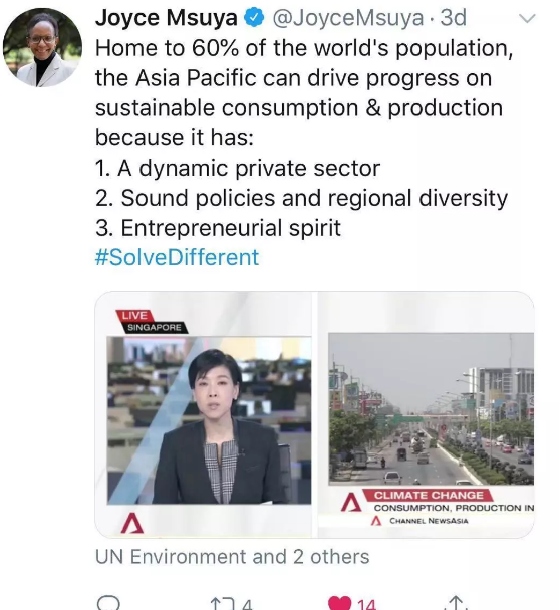
諸如此類(lèi)的案例僅僅是亞太地區(qū)長(zhǎng)久以來(lái)“以創(chuàng)新驅(qū)動(dòng)發(fā)展”的區(qū)域活力的零星體現(xiàn)��。我認(rèn)為����,亞太地區(qū)與生俱來(lái)的 “跳出慣性思維”的基因,是世界仰賴(lài)其尋求環(huán)境解決方案的根源所在�����。
Innovations like these are merely recent examples in a long history of regional ingenuity.This instinct to think beyond is why I think the world often looks to Asia and the Pacific for solutions to our environmental problems.
亞太地區(qū)40億居民體會(huì)到的經(jīng)濟(jì)發(fā)展的兩面性��,要比大多數(shù)人更深刻����。
The four billion inhabitants of Asia and the Pacific have seenboth sides of the developmentledger more vividly than most.
隨著傳統(tǒng)消費(fèi)和生產(chǎn)模式的膨脹式發(fā)展,人們的生活水平也大幅提高���。
Standards of living have skyrocketedastraditional consumption and production models have gone into overdrive.
然而���,全球各地普遍存在的不良發(fā)展習(xí)慣所產(chǎn)生的環(huán)境債務(wù)卻日益明顯:氣候變化�、污染�����、棲息地喪失和生態(tài)系統(tǒng)破壞����。
Yetthe environmental debt accrued by these global habits is increasingly obvious: climate change, pollution, habitat loss, and ecosystem destruction.
如果我們甘愿沉溺于此����,執(zhí)迷不悟,我們的未來(lái)將黯淡無(wú)光��。
If we continue to make the same choices, our future looks bleak.
但是�,如果我們投資尋找可持續(xù)的解決方案來(lái)應(yīng)對(duì)挑戰(zhàn),那么我們將擁抱一個(gè)更加富裕�、健康、公平的未來(lái)�����。
But there is a wealthier future, a healthier future, a more equal futureifwe invest in finding sustainable solutions to our challenges.
亞太地區(qū)各國(guó)的政府�、企業(yè)和公民已經(jīng)有所行動(dòng),在近幾十年來(lái)引領(lǐng)了一些重大轉(zhuǎn)變�。
Governments, companies and citizens in Asia and Pacific have scripted some of the greatest transformations seen in recent decades.
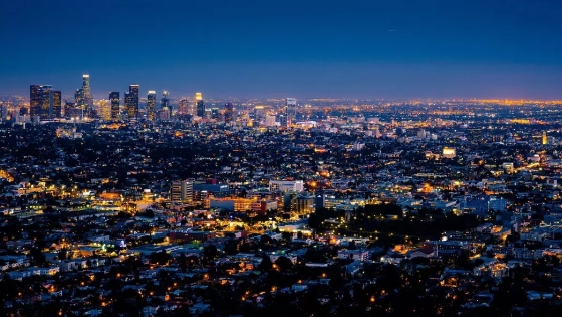
如今�,面對(duì)地球所承受的壓力和威脅����,世界再次期待亞太能夠發(fā)揮主導(dǎo)作用,帶領(lǐng)我們邁向一個(gè)更清潔���、更可持續(xù)且更公正的未來(lái)��。
And as our planet comes under threat, once againthe world is looking to the Asia Pacific to lead us into a cleaner, more sustainable and just future.
評(píng)估表明�����,實(shí)施聯(lián)合國(guó)可持續(xù)發(fā)展目標(biāo)能夠釋放12萬(wàn)億美元的經(jīng)濟(jì)機(jī)會(huì)�����,創(chuàng)造3.8億個(gè)就業(yè)崗位����。
Estimates show that implementing the United Nations Sustainable Development Goals can unlock US$12 trillion worth of economic opportunities and 380 million jobs.
為了實(shí)現(xiàn)這一目標(biāo)����,為了我們能夠擁有更多類(lèi)似Sasiranga, Angelica以及新加坡一樣的標(biāo)桿人物和示范國(guó)家,我們需要做到“創(chuàng)新無(wú)界”��。
To achieve this, like Sasiranga, like Angelica, like Singapore, we need to think beyond.

這對(duì)我們的現(xiàn)實(shí)生活有怎樣的啟示�����?
What does this mean, practically?
這意味著我們要直面現(xiàn)實(shí)�,破解難題,改變消費(fèi)習(xí)慣����。你可知道�����,肉類(lèi)和乳制品的生產(chǎn)占用了83%的農(nóng)田����,卻僅提供18%的卡路里。
It means altering consumption habits and confronting conundrumslike the fact that meat and dairy products use 83 per cent of farmland but comprise only 18 per cent of the calories we consume.
這意味著政府須大力投資可持續(xù)解決方案���,來(lái)恢復(fù)自然并重建生物圈�����。
It means governments investing heavily in sustainable solutionsthat restore nature and regenerate the biosphere.
這意味著消費(fèi)者要推動(dòng)公司承擔(dān)企業(yè)責(zé)任���,投資于質(zhì)量更高且可持續(xù)的材料�����、流程和基礎(chǔ)設(shè)施��。
It means consumers holding companies acableto invest in better and sustainable materials, processes and infrastructure.
愛(ài)因斯坦曾說(shuō):“我們不能用制造問(wèn)題時(shí)的同一水平思維來(lái)解決問(wèn)題�?�!?/p>
Einstein said that "We cannot solve our problems with the same level of thinking that d them."
我們不能寄希望于通過(guò)調(diào)整邊緣來(lái)改變世界�����。我們要徹底變革系統(tǒng)�����,放眼大局而不拘泥于某一特定問(wèn)題��,并且要比以往任何時(shí)候都更加雄心勃勃���。
We cannot transform the world by tweaking the edges. We need to transform our systems, looking beyond specific issues to the big picture, and being more ambitious than ever before.
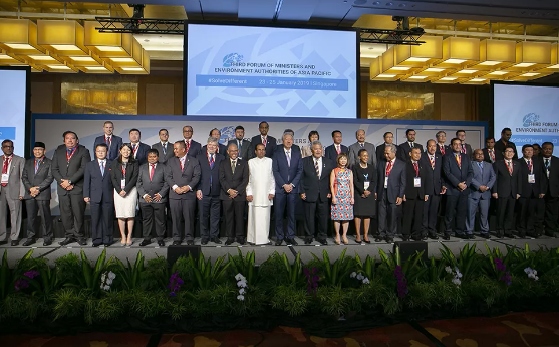
幸運(yùn)的是����,我們迎來(lái)了一個(gè)絕佳的契機(jī)。上周���,來(lái)自亞洲和太平洋地區(qū)的41個(gè)國(guó)家齊聚新加坡�����,共同確定區(qū)域環(huán)境問(wèn)題和解決方案��,各國(guó)攜手將環(huán)境保護(hù)工作提升到一個(gè)新的水平�。
We are fortunate that ries took things to the next level last week, asSingapore hosted 41 nations from around Asia and the Pacific to identify regional environmental problems and solutions.
這是史無(wú)前例的�����。齊聚獅城的與會(huì)人員包括總統(tǒng)�、部長(zhǎng)����、首席執(zhí)行官、企業(yè)家和活動(dòng)家�。
That’s unprecedented. We have presidents, ministers, CEOs, entrepreneurs and activists in the Lion City last week.
這也是首次,亞太各國(guó)齊聚一堂�,為當(dāng)前地球所面臨的問(wèn)題尋找突破口��。
It is the first time every ry from the region has come together hereto discuss the problems and solutions our planet is facing.
緊接著����,今年3月�,這些國(guó)家的代表會(huì)將相關(guān)解決方案帶到聯(lián)合國(guó)環(huán)境大會(huì)——世界最高級(jí)別環(huán)境決策機(jī)制——予以討論。
Then, in March, representatives from these ries will bring these solutions to theUnited Nations Environment Assembly, the world’s highest decision-making body on the environment.
我誠(chéng)摯希望�,亞太地區(qū)政府、私營(yíng)部門(mén)和公民所迸發(fā)的創(chuàng)新活力�,不僅能夠點(diǎn)亮本土區(qū)域,還能推動(dòng)世界一起向前發(fā)展�。
I have high hopes thatthe innovation from ries, companies and citizens from Asia and the Pacific is not only going to change the region for the better, but move the world forward as well.
編者注
本文寫(xiě)于新加坡亞太環(huán)境部長(zhǎng)會(huì)議召開(kāi)之際,作者為聯(lián)合國(guó)環(huán)境署代理執(zhí)行主任喬伊斯·姆蘇亞(Joyce Msuya)���。
原標(biāo)題:新加坡亞太環(huán)境部長(zhǎng)會(huì)議 | 創(chuàng)新改變世界
特此聲明:
1. 本網(wǎng)轉(zhuǎn)載并注明自其他來(lái)源的作品��,目的在于傳遞更多信息���,并不代表本網(wǎng)贊同其觀(guān)點(diǎn)。
2. 請(qǐng)文章來(lái)源方確保投稿文章內(nèi)容及其附屬圖片無(wú)版權(quán)爭(zhēng)議問(wèn)題�,如發(fā)生涉及內(nèi)容、版權(quán)等問(wèn)題���,文章來(lái)源方自負(fù)相關(guān)法律責(zé)任�。
3. 如涉及作品內(nèi)容、版權(quán)等問(wèn)題�����,請(qǐng)?jiān)谧髌钒l(fā)表之日內(nèi)起一周內(nèi)與本網(wǎng)聯(lián)系����,否則視為放棄相關(guān)權(quán)益。